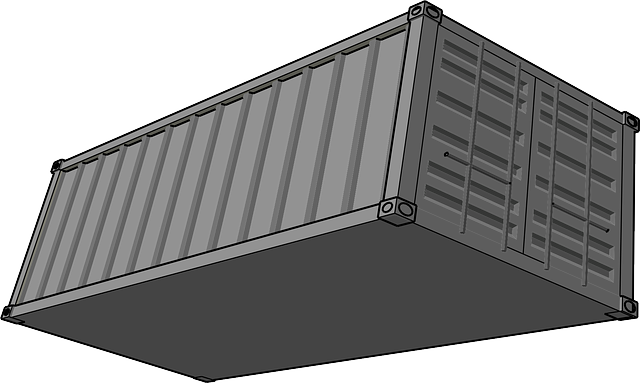Cargo insurance startups expanding their operations must prioritize scalable, flexible coverage solutions to manage growing complexities. This involves adapting risk assessment models to incorporate new routes, cargo types, and potential hazards, leveraging technology like data analytics and AI for informed decisions, and cultivating strategic partnerships with trusted insurers. Implementing robust risk management practices, including real-time hazard mitigation and specialized policy creation, coupled with a seamless digital infrastructure, ensures comprehensive protection while attracting tech-savvy customers. Adopting dynamic strategies, staying informed about industry regulations, and collaborating with reputable insurers equip startups to scale their fleets securely.
As cargo insurance startups navigate the dynamic landscape of freight transportation, establishing a robust foundation for scalable coverage is paramount. This article guides you through essential strategies and best practices for managing risk as your fleet grows. We explore the unique scalable coverage needs of cargo insurance startups, emphasize the importance of flexible risk management, and outline key components for building a strong operational foundation. By implementing these principles, startups can ensure consistent and comprehensive protection across an expanding network.
Understanding Scalable Coverage Needs for Cargo Insurance Startups

As cargo insurance startups expand their operations and fleet, they must prioritize scalable coverage solutions. This is crucial as it ensures smooth business continuity despite growth. Startups need to anticipate the varying risks associated with an increasing fleet, such as larger and more diverse cargoes, new routes, and potentially higher exposure to perils like weather events or port congestion.
Understanding these evolving needs is key to developing a robust insurance strategy. Cargo insurance startups should aim for policies that can adapt and scale effortlessly, providing comprehensive protection without compromising efficiency. This involves assessing the unique challenges of each operation, understanding their specific risk profiles, and securing flexible coverage options tailored to support their growth trajectory.
Building a Flexible and Adaptable Risk Management Strategy

As your fleet grows, so does the complexity of managing risks associated with cargo insurance. Startups in this space must build a flexible and adaptable risk management strategy to keep pace with expansion. This involves regularly reviewing and updating risk assessment models to account for new routes, types of cargo, and potential hazards. Embracing technology like data analytics and AI can streamline these processes, enabling startups to make informed decisions quickly.
Additionally, cultivating strong relationships with trusted insurance partners is paramount. Collaborating with insurers who understand the unique challenges of the shipping industry ensures access to tailored coverage options that can scale as your fleet expands. By integrating robust risk management practices and leveraging strategic partnerships, cargo insurance startups can create a solid foundation for scalable coverage, ensuring they remain competitive and resilient in an ever-evolving market.
Key Components of a Strong Foundation for Growing Operations

As your fleet grows, so does the complexity of managing operations and ensuring optimal coverage. Building a strong foundation is crucial for scalable coverage to keep up with demand. Key components include robust risk assessment practices, where cargo insurance startups utilize advanced data analytics to identify potential hazards and vulnerabilities in real-time. This proactive approach allows them to tailor policies that cater to specific industry niches, offering specialized solutions for unique cargo types and transportation methods.
Furthermore, a seamless digital infrastructure is essential. Many cargo insurance startups are leveraging technology to streamline the underwriting process, making it more efficient and accessible. Digital platforms enable policyholders to easily submit claims, track shipments, and access relevant documentation, fostering transparency and faster resolution times. This technological edge not only enhances operational efficiency but also attracts tech-savvy customers seeking modern, convenient solutions.
Best Practices for Maintaining Coverage As Your Fleet Expands

As your fleet expands, maintaining comprehensive coverage becomes increasingly critical for cargo insurance startups. A best practice is to implement a structured risk assessment process that identifies unique risks associated with new vehicles or routes. Regularly review and update your insurance policies to ensure they align with this evolving landscape. Diversifying your fleet requires a dynamic risk management strategy. Consider specialized coverage options tailored to specific vehicle types, such as cargo liability for heavy hauls or transit insurance for international shipments.
Another key practice is staying informed about regulatory changes in the shipping industry. Keeping up-to-date with new laws and standards ensures that your insurance policies remain compliant. Collaborate closely with reputable insurance providers who specialize in cargo insurance to gain access to cutting-edge risk mitigation tools and data analytics. By adopting these best practices, cargo insurance startups can maintain scalable coverage as their fleet grows, protecting their assets and operations along the way.
As cargo insurance startups navigate the dynamic landscape of fleet growth, establishing a robust foundation for scalable coverage is paramount. By adopting a flexible risk management strategy and implementing key components for strong operational growth, these startups can ensure they maintain adequate coverage as their fleets expand. Following best practices outlined in this article, startups can future-proof their operations, mitigate risks effectively, and thrive in an ever-evolving market.
